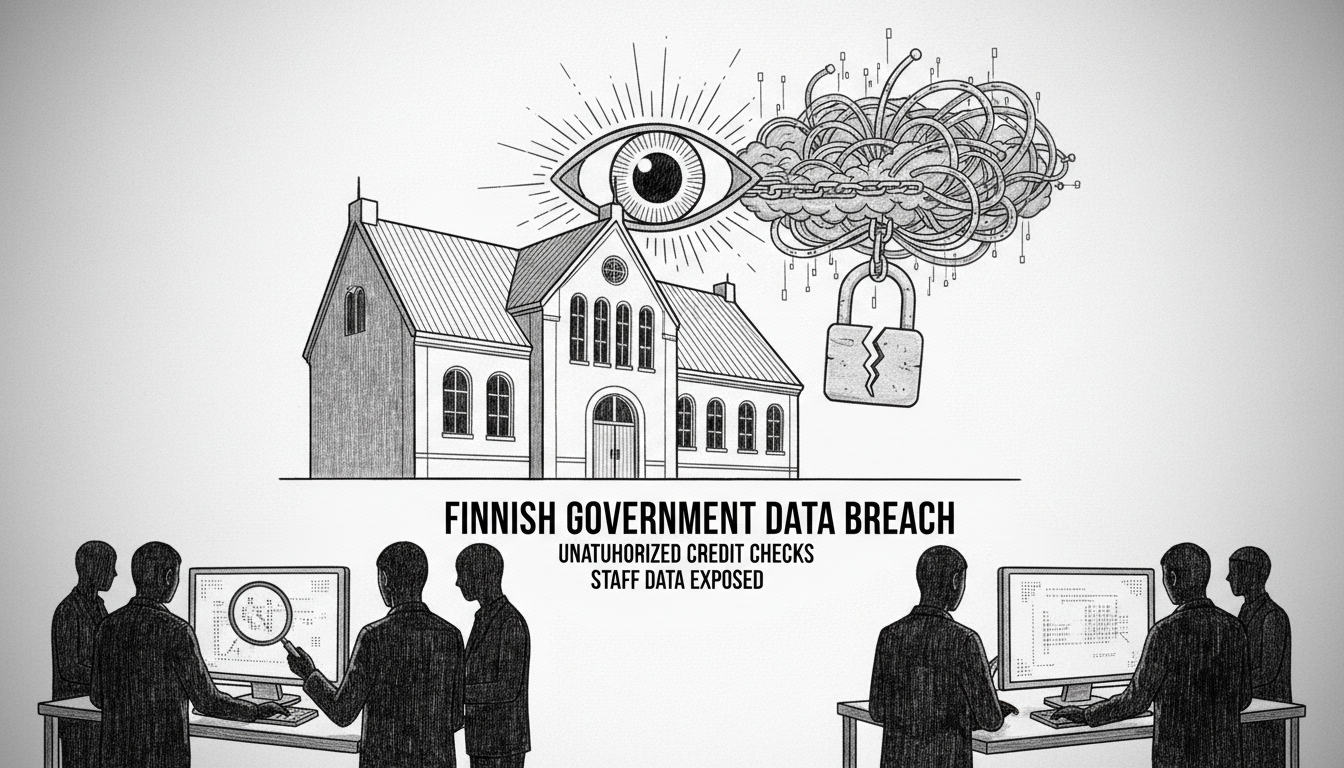Finland's Legal Services Agency faces scrutiny after conducting unauthorized credit checks on its entire workforce. The government body discovered it improperly accessed employee financial records during an internal risk assessment. The incident affects all 610 staff members across the agency's advocacy and financial departments.
The data breach occurred when the agency requested employee credit information from Finland's customer data registry. Officials later realized they lacked legal authority to check credit data for current employees. The agency identified the error on Friday, November 14th.
By November 17th, the agency removed all improperly obtained data from its systems. Management instructed all personnel involved in processing the information to delete their copies. The agency has notified Finland's Data Protection Ombudsman about the privacy violation.
Why did the agency check employee credit data? Officials explained they sought to identify circumstances that might make employees vulnerable to misconduct. They cited significant personal financial problems as one potential risk factor.
Finnish law strictly limits when employers can access credit information. Such checks are only permitted during recruitment for positions involving independent financial decision-making. The agency claims the risk of data misuse remains low.
This incident raises serious questions about government oversight of sensitive employee data. How could a legal services agency misunderstand basic privacy regulations? The breach suggests either poor training or inadequate internal controls.
Finland's Legal Services Agency provides crucial public services including legal aid, general advocacy, and financial counseling. The agency's mission focuses on protecting citizens' legal rights, making this data mishandling particularly concerning.
What consequences might follow? The Data Protection Ombudsman could investigate potential GDPR violations. Employees might file complaints about unauthorized data processing. The agency will likely review its internal procedures to prevent future incidents.
This case highlights the tension between organizational risk management and employee privacy rights. Government agencies must balance security concerns with strict data protection requirements. The incident serves as a reminder that even well-intentioned oversight can cross legal boundaries.
International readers should note Finland's generally strong data protection record. The country typically ranks high in global privacy indexes. This makes the government agency's error particularly noteworthy and suggests systemic issues worth monitoring.

